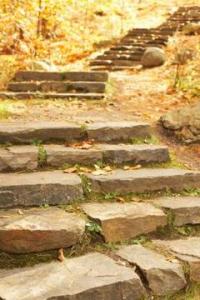 Have you ever tried to change something in your life? Like, start waking up earlier and dedicate one hour or two for reading; fit 30 minutes of exercise into your busy schedule; begin yoga lessons that helps you to relax and be more mindful of the present; learning a foreign language; or just start writing nonsense in the hope of producing a book one day.
Have you ever tried to change something in your life? Like, start waking up earlier and dedicate one hour or two for reading; fit 30 minutes of exercise into your busy schedule; begin yoga lessons that helps you to relax and be more mindful of the present; learning a foreign language; or just start writing nonsense in the hope of producing a book one day.
If you have, it is likely that you discovered old habits die hard. It doesn’t help when research shows that newer generations are more used to instant gratification, meaning they see the rewards they can get instantly or with little effort being more attractive compared to better rewards that requires time or effort. When an obstacle presents itself, the effort required increased, therefore the rewards now seem less attractive, and we are more likely to revert back to our old habit.
So, how do we overcome it? Simple really, we start small. Cut down your goal to something so easy you can almost do it in your sleep, almost. This turns instant gratification to our favour, really: when we made it so easy that there is little to no obstacle in our way, we could achieve it before the thought of not doing it even shows up. It’ll be like “what about n-OH IT’S DONE!”. The best part is the rush of excitement we feel over our little achievement, that one thing we’ve been meaning to do but keep slipping out of our grasps. Sure, it’s a small achievement, but that may be just what we need to motivate us breaking through our old habit and start sticking to a new one.



 Recently I decided to pay a rare visit to the cinema to watch “The Hobbit: The Desolation of Smaug”, based on the work of one of my favourite writers of all time, J. R. R. Tolkien. I left the cinema with mixed feelings about the movie, but today’s post is not about the movie; rather it is about a small incidence that happened after the movie ended. As the credits started to roll, most of the audience started to get up and leave; not me. I decided to stay back for a little while longer trying to see if there were any surprises left after the credits. After my curiosity have been satisfied, I got up and went straight to the bathroom: you know how close-to-3-hours-long movies tend to do these things to you.
Recently I decided to pay a rare visit to the cinema to watch “The Hobbit: The Desolation of Smaug”, based on the work of one of my favourite writers of all time, J. R. R. Tolkien. I left the cinema with mixed feelings about the movie, but today’s post is not about the movie; rather it is about a small incidence that happened after the movie ended. As the credits started to roll, most of the audience started to get up and leave; not me. I decided to stay back for a little while longer trying to see if there were any surprises left after the credits. After my curiosity have been satisfied, I got up and went straight to the bathroom: you know how close-to-3-hours-long movies tend to do these things to you.